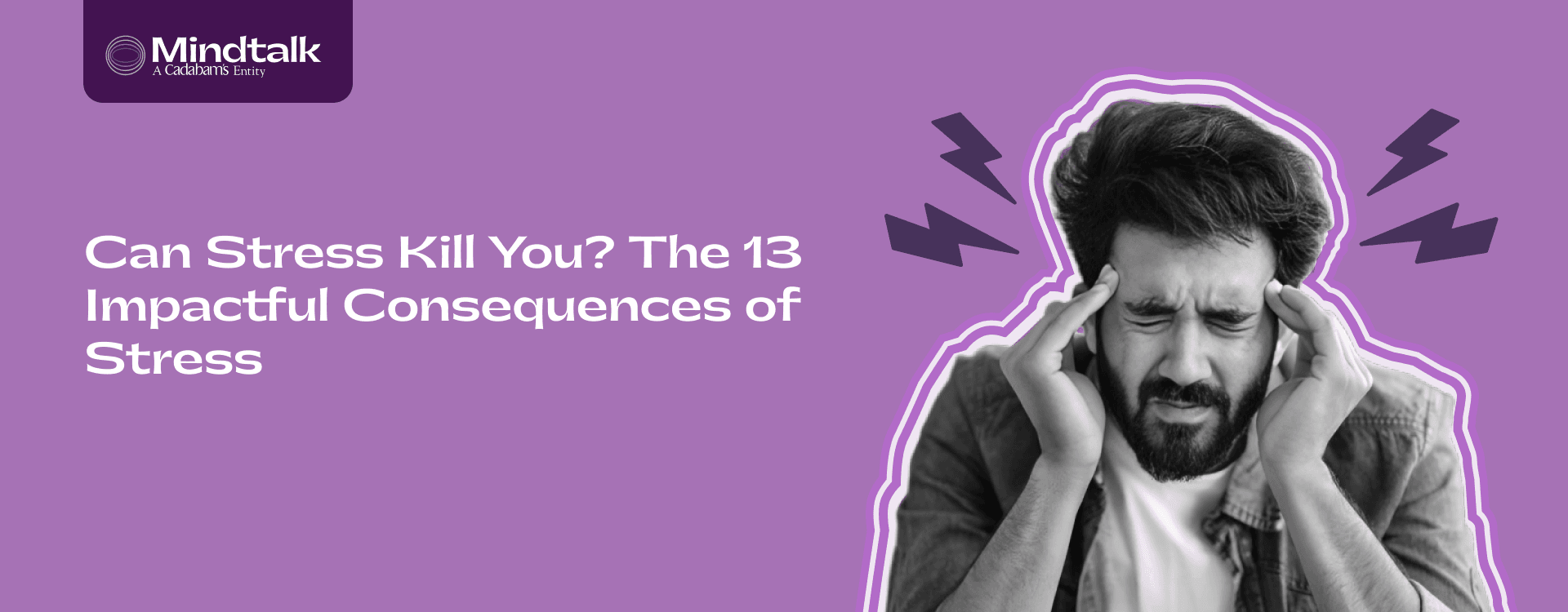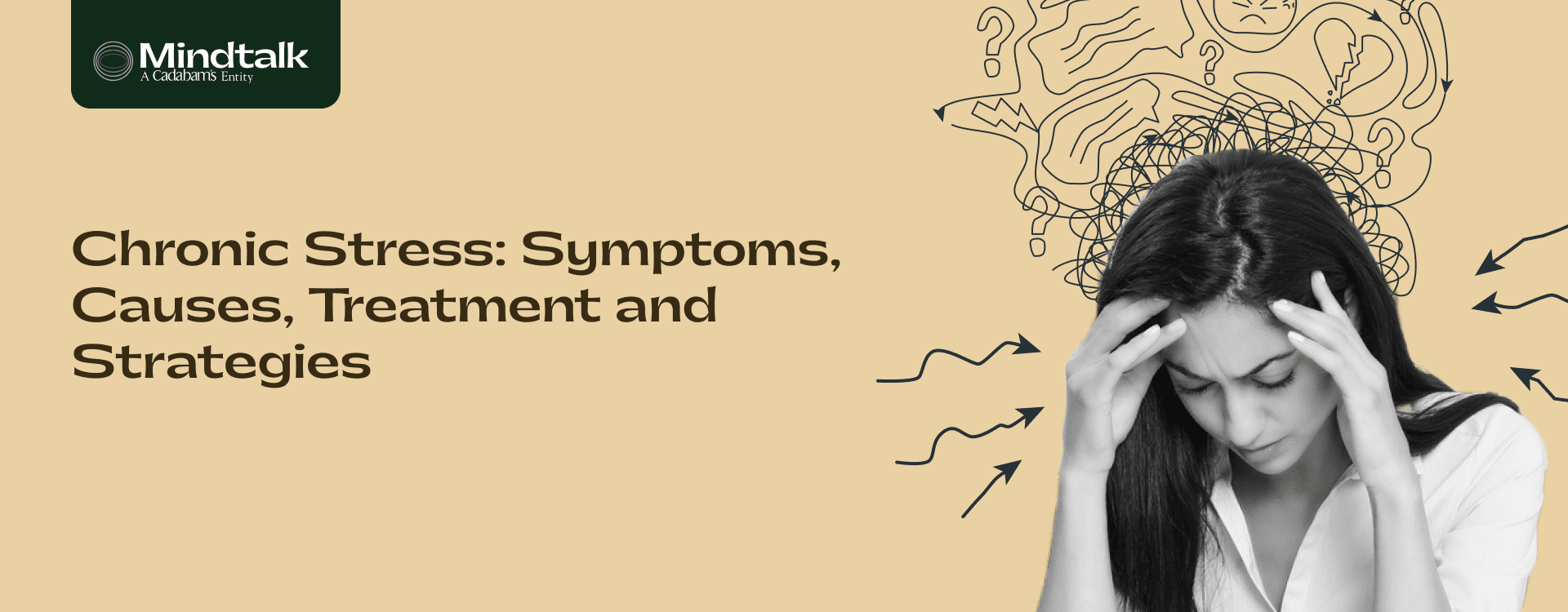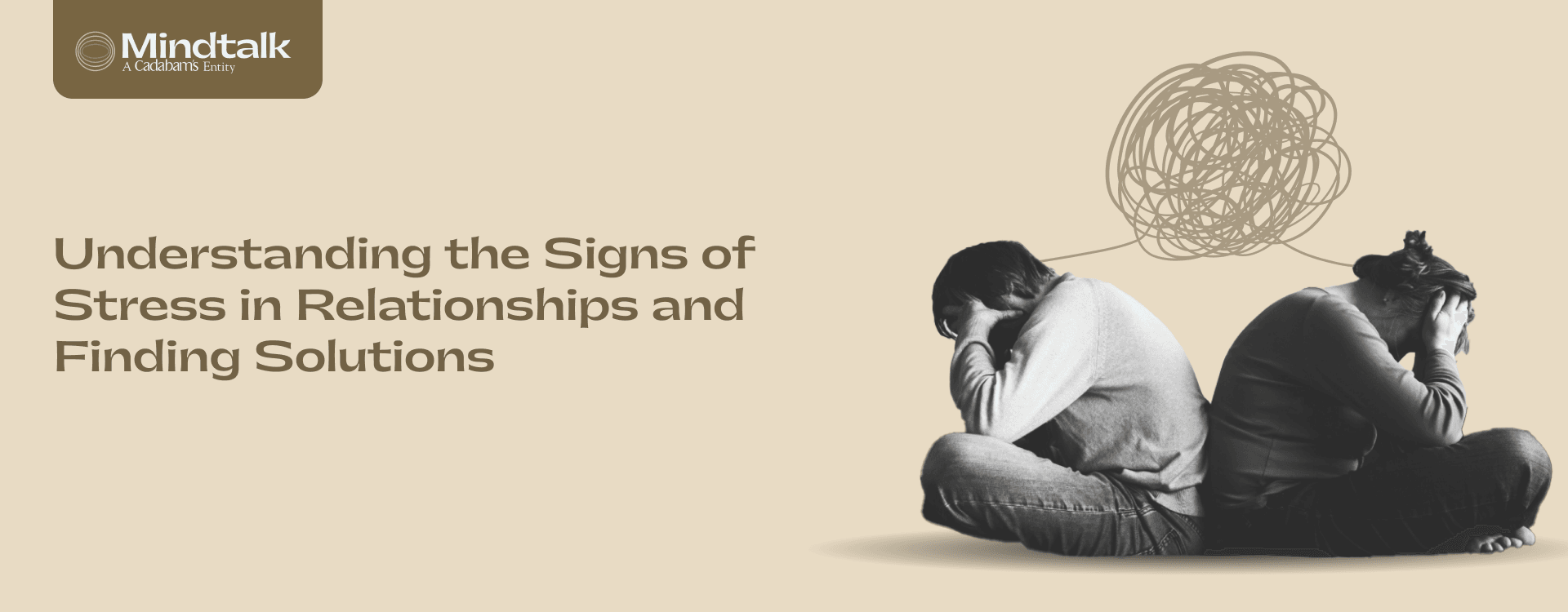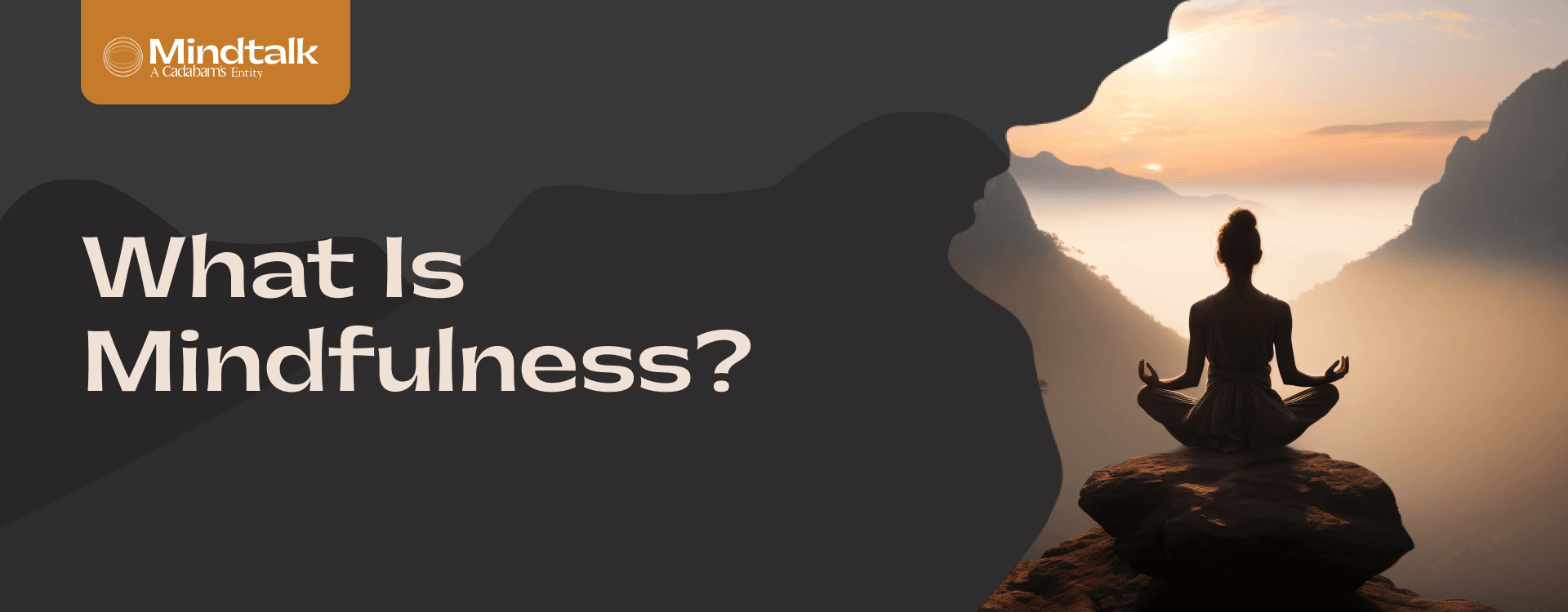Understanding Mindfulness: A Path To Enhanced Well-being
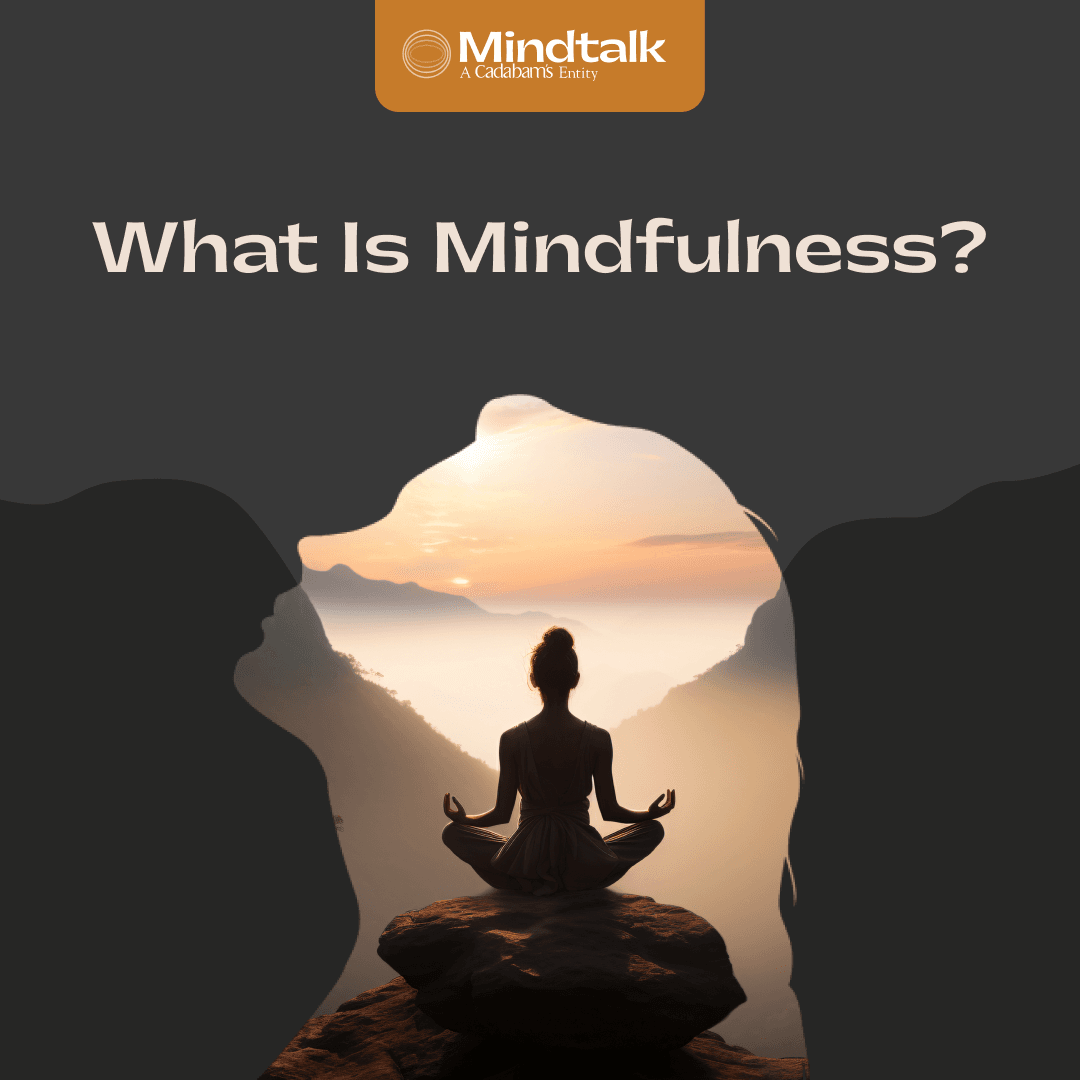
We've all longed to mute the constant chatter in our minds, haven't we? While these wandering thoughts often have little to do with the present, but these thoughts are often responsible for the stress we are experiencing in everyday life. So, you might be wondering if there is any solution for this. Our answer is yes, there is “Mindfulness”.
Let's explore and understand what is it and how it can enhance your well-being.
What Is Mindfulness?
Mindfulness is a way you train your mind to slow down the wandering thoughts, let go of the negativity associated with these thoughts, relax your mind and body, and live in the present. Mindfulness is something that we already possess, just need to learn how to access it. It teaches you to acknowledge your feelings, thinking, and sensations without judgment.
What Is The Purpose Of Mindfulness?
When you are spending too much time planning and contemplating negatively, you are drained of your energy. This sometimes leads to conditions such as anxiety, stress, and depression. The main purpose of Mindfulness is to ensure that you direct your attention and energy away from negative thinking.
It is a type of meditation practice that allows you to be extremely cognizant of what you are sensing, thinking, and experiencing at this very moment without judgment, thus ensuring that you enjoy your present while also securing your mental health.
Can Mindfulness Help Reduce Stress?
Two of the major reasons why people experience stress are the past and future. Many a time we carry heavy baggage from our past which frequently interferes with the quality of our present life. In the same way, we all are concerned about our future, and questions linked to our future always linger in the back of our minds. Mindfulness addresses these concerns by training your mind to be aware of the present thus reducing stress drastically.
Benefits Of Mindful Living
Mindfulness is an awakening and when you are mindful, you focus on the things at hand rather than drifting away. It increases positive energy and offers a sense of relaxation. But these are not the only benefits mindful living offers.
Several clinical trials have shown that people who practice mindfulness experience a plethora of benefits and these are:-
Decline in Depression
Reduction in Stress and Anxiety
Improve Emotional Regulation
Improved Memory
Improvement in Cognitive Function
Improve Relationships
Enhanced Mental and Physical well-being
Boost Resilience.
Better Sleep
Improved Focus
Pain Management
Better Immune Response
Mindfulness-Based Stress Reduction (MBSR) Explained
MBSR is a popular structured meditation therapy program wherein an instructor guides participants in activities like yoga and meditation over a set period of time. The method is often used as a complementary practice and helps people with anxiety, depression, addiction, chronic pain, high blood pressure, immune disorder, etc.
The 8-Week MBSR Program Overview
If you are struggling with everyday stress, then an 8-week MBSR Program can be quite beneficial for you. Under this program, the instructor teaches you guided meditation, breathing techniques, gentle yoga, and cognitive exercise, and helps you develop skills to manage stress.
The best thing about this program is that you don’t even need to have prior experience in any sort of yoga or meditation.
Benefits Of MBSR For Mental And Physical Health
MBSR offers a strong resource guide that enhances both mental and physical well-being. On the mental side, it helps in lowering stress levels, anxiety, and depression. It also helps to stimulate emotional regulation, stability, self-understanding, and clarity along with focus, and sleep quality.
Physically, the program can lead to reduced pain and inflammation, an improved immune system, lower blood pressure and heart rate, and even a decreased risk of chronic diseases.
Incorporating Mindfulness Into Daily Life
21st-century life is demanding and it is quite difficult to focus on everything on your plate, but it isn’t impossible. By consciously developing mindfulness, you can steer the muddle with greater clarity and calmness. So, here are a few easy ways to incorporate mindfulness into your life.
Simple Mindfulness Exercise For Everyday
So, sit comfortably and close your eyes because we are going to give you a few simple mindfulness exercises that you can perform every day without any trouble.
Walking Meditation
You must be wondering what is walking meditation, because either we walk or meditate, but can’t do both at the same time, isn’t it?
Mindful walking is a dynamic form of meditation, contrasting with sitting meditation. It involves focusing on the sensations of walking, typically done in a quiet park or spacious room. Instead of concentrating on the breath, here attention shifts to the feet and the sensation of body, and movements. For a beginner, a 10-minute walk is sufficient.
Pay Attention
It is the easiest of all the exercises we are discussing here but requires a bit of practice to excel. Understandably, it’s hard to notice everything passing your way, especially when leading a busy life. However, you can achieve this by using this simple technique, when talking, walking, eating, or being involved in any activity, take time to experience the environment with your senses- touch, smell, taste, sight, and sound to enjoy every aspect of your present.
Sitting Meditation
This is probably the most known exercise, wherein you simply have to sit with your back straight on a seat or on any platform, you can use a pillow to support your back. Now keep your feet flat on the ground and hands on your lap. Take a deep breath through your nose, and exhale through your mouth. Focus on the movement of breath as it passes through your esophagus and touches down in your lungs, expanding it.
Mindfulness In Relationships And Work
Incorporating mindfulness into your daily schedule does wonders not only in mental and physical aspects but also works great in personal and professional relationships.
By practicing this art of meditation, you become an expert in concentration, develop empathy, and improve emotional regulation, gratitude, and resilience. When you are calm and focused you listen to others without judgment which builds deeper connections.
These are the qualities one must have to maintain meaningful and healthy relationships in workspace and personal space.
Overcoming Common Challenges In Mindfulness Practice
Like with other practices, mindfulness too has its share of difficulties and challenges. It is a skill that takes time to understand, learn, and implement into daily habits. But with a little patience and the right mindset you can master the art of mindfulness.
Common Obstacles And How To Overcome Them
While many find it challenging to regularly harmonize mindfulness into their daily routines, the beauty of this practice is its flexibility. You can engage in mindfulness anywhere and anytime. Here are a few tips and tricks.
- Time: Squeeze in 5-minute breaths, mindful walks, or focused activities, like cooking.
- Distractions: Acknowledge and gently refocus, and use guided meditations to anchor attention.
- Boredom: Explore walking meditations, mindful movement techniques, or body scans.
- Uncomfortable emotions: Label them ("anger"), observe without judgment, remember they're transient.
- Self-doubt: Be kind, progress over perfection! Track small successes, and celebrate milestones.
Building A Consistent Mindfulness Routine
It is common for us to start something enthusiastically, but over time we fail to keep a consistent flow. Here are a few effective ways to stay on your course.
- Keep it Short: Start your practice with a 5-minute session, then gradually increase the time.
- Pick a Time: Pick a time that fits your flow, either before bed or early morning.
- Add Your Favorite: You can incorporate practices you like, such as mindful eating, mind walking, etc.
- Pair with Existing Habit: While executing daily routines like brushing, you can add this practice.
- Be Kind to Yourself: If you miss a day, be kind to yourself and restart again.
When To Seek Professional Guidance
While mindfulness is a great tool to counter many lifestyle and mental issues, it may not work the same way for everyone. Here are a few cases where you may need professional guidance.
- Struggling with Mental Health Challenges: If already struggling with a mental health condition, then it is advised to seek professional help.
- Struggling to Keep the Flow: Let’s be honest, sometimes it’s difficult to cling to mindfulness, working with a coach or instructor can help.
- Experiencing Grief or Trauma: Mindfulness can be benign during tough times, but when dealing with deep emotions like trauma, a professional in mindfulness techniques can guide you safely.
Therapy Options For Mindfulness
Mindfulness employs various therapies and practices, such as meditation and body awareness, to help people focus on the present moment and accept their thoughts and feelings without judgment. Many studies have shown its effectiveness in treating multifarious mental health conditions, such as anxiety, depression, and addiction. Below is the list of therapies that complement mindfulness.
Get Expert Guidance From MindTalk For Mindful Living
Feeling stressed out? Mindfulness could be the answer you are searching for! Even studies have shown its effectiveness in reducing stress, boosting focus, and enhancing emotional well-being. But are you pondering where to begin?
No problem! Join our community and connect with like-minded individuals on their mindfulness journey. At Mindtalk, we provide a judgment-free space where our expert guidance and supportive community enable you to cultivate a mindful practice, reducing stress, enhancing well-being, and empowering you to live life to the fullest.
Similar Posts
